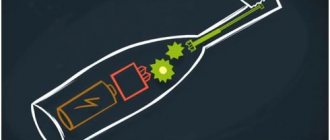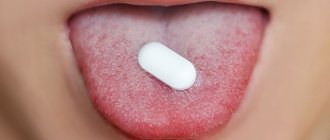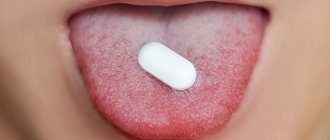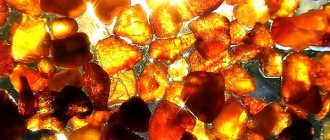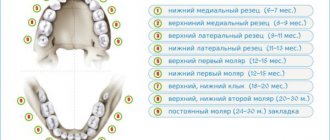The article was prepared by a specialist for informational purposes only. We urge you not to self-medicate. When the first symptoms appear, consult a doctor.
Suppositories for reducing body temperature are used in the treatment of children and adults. This form of release becomes especially relevant when it is not possible to take the drug orally. The active component is absorbed through the intestinal mucosa, enters the bloodstream and spreads throughout the body, providing an antipyretic effect. The entire process bypasses the upper gastrointestinal tract without causing irritation.
In addition to antipyretic properties, suppositories may have a number of other effects. They reduce pain, stop inflammation, and make you feel better. The list of contraindications for drugs in the form of suppositories is much shorter than for tablets, capsules or syrups. However, they can also cause side effects, so before starting treatment you should consult a specialist.
In the article, we have collected the most frequently prescribed suppositories for fever for children and adults, examined the features of their use, as well as the pros and cons of each drug [1], [2], [3].
- Paracetamol
What to give a child with a fever?
Monday, January 10
6055
4.3
1
Content
- What temperature is considered elevated in a child?
- What medications should not be given to a child with fever?
- How can you lower your child's temperature?
- Which antipyretic to choose for a child
- Top 8 best antipyretics for children
- Paracetamol
- Calpol
- Panadol
- Efferalgan
- Tsefekon-D
- Ibuprofen
- Ibufen
- Nurofen
- What not to do if a child has a high temperature
When a child is sick and his temperature rises, the body experiences excessive stress. Pediatricians advise lowering the temperature if it exceeds 38-38.5 degrees. Antipyretics have been developed especially for children and should definitely be in your home medicine cabinet. When choosing such drugs, it is necessary to take into account not only the age of the child, but also the active ingredient of the fever remedy.
Criterias of choice
It is worth noting that the earlier the infection is detected, the easier it is to cope with it. How to determine its presence in the early stages? It is enough to watch your baby to understand that something is bothering him. He becomes capricious, irritable, and begins to cry for no apparent reason. Even the most unpretentious babies refuse breast milk, tasty porridge, and do not want to play. Lethargy is the first sign of an impending illness.
As a rule, with ARVI the temperature rises sharply. Sometimes the figure reaches 39 degrees. A cough, runny nose may begin, and the eyes become red and constantly watery.
With such symptoms, it is necessary to take urgent measures to restore the child’s health. It is worth noting that it is doctors who must prescribe therapy. Mistakes when choosing medications should not be made. This is fraught with negative consequences. However, it would be a good idea for parents to know about antiviral drugs.
All popular models taken for colds are divided into the following groups:
- Stimulating the production of interferon (immunomodulators).
- Direct antiviral action.
- Homeopathic.
- Ready-made interferons.
These funds are used depending on the following indicators:
- the age of the child (subject to dosage restrictions);
- immunological status of the child (state of the immune system).
The older the child, the more options available for use against the flu. Only certain medications can be given to newborns. These include:
- rectal baby substances;
- Oscillococcinum granules;
- Aflubin drops and other “gentle” medications.
What medications should not be given to a child with fever?
Children with elevated temperatures should not be given the following medications:
- "Analgin" (metamizole sodium). In civilized countries, “Analgtn” is prohibited because it negatively affects hematopoiesis and is highly toxic. In post-Soviet countries it is used, for example, as emergency aid as a component of the “lytic mixture”. "Analgin" can be administered once only if other antipyretic drugs are not available. Continuous use of this drug is unacceptable for both adults and children.
- "Aspirin" (acetylsalicylic acid). It is prohibited to use this drug for viral diseases before the age of 12 - the child has a high risk of developing Reye's syndrome (toxic encephalopathy with liver damage).
- "Nimesulide" ("Nise", "Nimulid"). Preparations with such an active substance are prohibited in children under 12 years of age, since there is a high risk of developing toxic hepatitis (severe liver damage).
How can you lower your child's temperature?
Pediatricians recommend reducing the temperature of children with paracetamol or ibuprofen. It is also important that the dosage of the drug is calculated based on the baby’s weight (there is always a special measuring spoon or syringe in the box with syrup). Ordinary teaspoons are not used in such cases, just like the “by eye” method. You can buy an antipyretic for a child in the form of syrup or suppositories if the baby cannot yet take a pill.
How to reduce a child's temperature
Features of treating children
Given the tender age, antibiotics should be selected with special responsibility. In addition to basic treatment, it is extremely important to adhere to a certain diet and take probiotics to protect and restore gastric microflora.
Due to the fact that the child has not yet developed a full-fledged immune system, doctors very often have to resort to medications containing antibiotics. During treatment, it is extremely important to adhere to all the rules prescribed in the instructions. These medications are taken for a strictly defined number of days. If the period of use is increased, the body gets used to outside help and stops fighting bacteria and viruses. An interrupted course of treatment risks complications and the disease becoming chronic.
The doctor may prescribe a broad-spectrum or narrow-spectrum antibiotic. Sometimes the situation develops in such a way that there is no time for an accurate diagnosis of the disease and you have to select the most optimal option.
Which antipyretic to choose for a child
The ideal form of the drug for fever for infants is rectal suppositories.
The drug is absorbed in the large intestine and begins to work within half an hour after administration. Candles are very convenient when you need to bring down the temperature, but the child is spitting up or vomiting.
Syrup (or suspension)
It is usually given to children from 1 year of age, although it can be used earlier. This form of antipyretic begins to act quickly and is suitable even if the temperature rises rapidly. When purchasing a syrup or suspension for fever, be sure to read the composition of the drug: it may contain different dyes and flavors, which sometimes cause allergies.
Tablets for fever
can be given only to those children who know how to swallow them (usually at an older age).
Read also: The most effective antipyretics for adults 8 most effective drugs for high fever
Pros and cons of using candles depending on temperature
Using temperature controlled candles provides the following benefits:
- The drug acts without bypassing the digestive system.
- Suppositories can be used against the background of nausea, vomiting, gastrointestinal diseases, and impaired swallowing.
- A person will not have to feel the taste and smell of the medicine, which is not always pleasant.
- The drug is absorbed into the blood quickly. This does not take much longer than with intramuscular administration.
- Allergies to the active components of suppositories occur less frequently than to other dosage forms.
- Candles are convenient to use for treating children and the elderly.
Despite all the positive characteristics, candles are not without drawbacks. These include:
- The absence of many drugs in this form of release.
- Inconvenience of use due to the need to comply with hygiene rules.
- Candles cannot be used outside the home; they must be stored under certain conditions.
- Some of the drug may leak out of the anus if administered incorrectly.
- The inability to use suppositories for diseases of the rectum, as well as for diarrhea.
Top 8 best antipyretics for children
We have compiled a list of the safest and most effective fever medications for children, recommended by pediatricians. In addition, these products have earned positive reviews from mothers on forums.
Antipyretics based on paracetamol
These are the most effective drugs that are suitable for children from 1 month. They quickly reduce body temperature and relieve pain. Paracetamol-based products help with acute respiratory viral infections, various inflammations and teething in babies. Contraindications to taking paracetamol include viral hepatitis, liver and kidney diseases, and diabetes. Possible side effects include nausea, vomiting, skin rash, and refusal to eat.
Terms of use
Kids get sick very often. A slight breeze or frozen feet is enough for them to develop a runny nose, cough, and fever. Constant communication with peers leads to the transmission of infection from a large child to a healthy one. A child can become infected by visiting kindergartens, playgrounds, development groups, sports or creative clubs, and so on. The growing body is not yet able to resist infections. The attack occurs on the immune system, the formation of which has not yet been fully completed.
Parents are different. To be on the safe side, some begin to stuff their children with all sorts of medications when the first symptoms of an acute respiratory infection or acute respiratory viral infection appear, others are ready to wait a little to give the body a chance to cope with the infection on its own, others prefer the “old-fashioned methods” - gargling with chamomile decoction or calendula tincture, steaming the legs in dry mustard and so on. However, not everyone is able to withstand such procedures. This is especially true for newborns.
In order to prevent colds and treat them, manufacturers have launched the production of special suppositories. They are produced in the shape of a cone, have a solid consistency, but at body temperature they begin to melt and be absorbed into the walls of the rectum. In this case, there is no negative effect on the gastrointestinal tract, which minimizes the risk of side effects.
How to choose an effective drug? Self-medication is not advisable. When the first symptoms of the disease appear in your baby, you should visit a pediatrician, who, after examination, will make the correct diagnosis and prescribe a course of treatment, choosing the best options.
As a rule, rectal suppositories are recommended for use by children from the first days of life until they reach the age of three. Some medications belong to the group of interferons, and can prevent the development of viral microorganisms in a matter of days. The course of treatment is only three to four days.
The application procedure involves the following manipulations:
- Before introducing them, you need to empty your stomach. The child can do this on his own or with an enema.
- The anal area should be clean and well dried.
- The baby lies on his back.
- The legs are tucked towards the tummy.
- The candle is carefully inserted into the anus.
- The anal area is wiped with a damp cloth.
- It is advisable for the baby to wear a diaper.
- It is necessary for the child to remain on his back for a couple of minutes.
Doctors advise carrying out manipulations with disposable gloves.
Paracetamol
This antipyretic works as an analgesic (reduces pain) and an antipyretic (lowers body temperature). In addition, Paracetamol has a slight anti-inflammatory effect. One dose can reduce the temperature by 1-1.5 degrees, and the effect lasts for about four hours. Paracetamol is prescribed for viral and colds, and for teething. Until a child is three months old, Paracetamol should be prescribed exclusively by a doctor. The dosage of the drug is also calculated by the doctor; the syrup or suspension should be given to the child before meals. It is important not to dilute the suspension in water, but to give it as is. The syrup can be diluted in a small amount of water or added to a feeding bottle. Among the advantages: safety, possibility of use at a very early age, absence of complications. Disadvantages: sometimes it is possible to develop an allergic reaction (skin rash, nausea, vomiting).
Paracetamol
JSC Pharmstandard-UfaVITA, Russia
Pain syndrome of weak and moderate intensity of various origins (including headache, migraine, toothache, neuralgia, myalgia, algodismenorrhea; pain from injuries, burns).
Fever in infectious and inflammatory diseases. from 18
1061
- Like
- Write a review
Read also: Choosing vitamins for children: 6 best complexes The best vitamin and mineral complexes for children of different ages.
Calpol
Another antipyretic for children, which contains paracetamol. You need to take Calpol an hour to an hour and a half after eating. The drug is sold in the form of a suspension that cannot be diluted with water. The child should take the medicine and wash it down with enough liquid. "Calpol" is prescribed from the age of three months. It has virtually no side effects and quickly brings down the temperature. Among the disadvantages is that you can buy Calpol only in the form of a suspension, and it contains flavorings.
Calpol
GlaxoSmithKline, GSK, UK
Calpol is a syrup for children, an analgesic, has antipyretic and analgesic effects.
Used as: an antipyretic for acute respiratory diseases, influenza, childhood infections, post-vaccination reactions and other conditions accompanied by an increase in body temperature, an analgesic for pain of mild and moderate intensity, including: headaches, toothaches, muscle pain, neuralgia, pain from injuries and burns. from 75
263
- Like
- Write a review
Why is this form factor preferable?
Medicinal substances are produced in huge quantities. On sale you can find familiar names and new items. Which company is better to buy a product depends on many factors, including personal preferences. However, pediatricians recommend using medications such as suppositories from birth. They have a number of undeniable advantages:
- Absorption rate through the hemorrhoidal vein system.
- Compact sizes.
- Possibility of dosage.
- Ease of use.
- Painless effect.
- Inability to give up and spit out medicine.
- Minimal impact on the gastrointestinal tract.
- The antiviral agent itself does not come into contact with hydrochloric acid and aggressive enzymes found in the stomach.
- The best option for babies who suffer from a strong gag reflex or the swallowing process itself is impaired.
- Speed and effectiveness of impact.
How do they work? Fast enough. A substance administered rectally is absorbed into the hemorrhoidal vein system in a matter of seconds and sent into the systemic bloodstream. The therapeutic effect is visible to the naked eye after a few minutes. The speed of action is comparable to intravenous administration of drugs.
There are practically no side effects when used. Unlike oral medications, suppositories do not irritate the gastrointestinal mucosa. At the same time, the antipyretic effect lasts much longer than when using tablets or capsules.
Panadol
You can take Panadol from 3 months; the antipyretic is sold in the form of a suspension and rectal suppositories. The doctor calculates the dosage of the drug based on the child’s weight. You can take no more than four doses of Panadol suspension per day at regular intervals. Candles - no more than three times a day. Panadol does not retain water in the body, so there will be no swelling. Among the disadvantages of the drug is individual dosage calculation, otherwise there is a risk of allergic reactions.
Panadol for children
GlaxoSmithKline, France
Used in children aged 3 months to 12 years: to reduce elevated body temperature due to colds, flu and childhood infectious diseases (including chickenpox, mumps, measles, rubella, scarlet fever);
for toothache (including teething), headaches, ear pain with otitis media and sore throat. In children 2-3 months of age, a single dose is possible to reduce body temperature after vaccination. from 57
172
- Like
- Write a review
Efferalgan
Efferalgan has various forms of release, but only syrup and suppositories are suitable for children. Efferalgan can be taken by babies from 1 month old; it can be added to milk, water or juice. Efferalgan suppositories have different dosages of the active ingredient, so when purchasing such suppositories you need to take into account the age and weight of the child. Children over two years old can take Efferalgan in the form of a fruit-flavored powder for dilution in water. This antipyretic agent quickly reduces fever. Among the disadvantages are individual selection of dosage and possible allergic reactions.
Efferalgan Children's
UPSA, France
Efferalgan for children is an analgesic non-narcotic drug.
Efferalgan contains the active substance - paracetamol - a drug from the group of non-narcotic analgesics. - as an antipyretic for acute respiratory infections, influenza, childhood infections, post-vaccination reactions and other conditions accompanied by an increase in body temperature; - as an analgesic for pain of mild or moderate intensity, incl. headache and toothache, muscle pain, neuralgia, pain from injuries and burns. from 51
5.0 1 review
574
- Like
- Write a review
Antibiotic suppositories "Polyoxidonium"
The drug contains azoximer bromide, cocoa butter, preservative E421, carotene and povidone. These pale yellow candles have a pleasant cocoa scent. They are used to treat any form of tuberculosis, inflammation of the genitourinary system and ARVI. This antibiotic in suppositories for children with bronchitis has proven itself to be excellent. For children over 5 years of age, the drug “Polyoxidonium” is very often used.
This drug is contraindicated in case of individual intolerance to the components of the drug. You should also be careful in case of renal and liver failure. For children, an antibiotic in the form of suppositories is used in an amount of no more than one suppository per day for 3 days. In the future, the doctor may prescribe a continuation of the course according to the following scheme: one suppository every other day for 1 month.
Tsefekon-D
The active substance in this fever remedy is also paracetamol. You can buy "Cefekon-D" in the form of rectal suppositories (for the youngest patients). "Cefekon-D" is suitable for reducing fever during ARVI, colds and after vaccination. The drug not only relieves fever, but also has anti-inflammatory and analgesic effects. Among the disadvantages is a possible allergic reaction in case of overdose.
Tsefekon D
OJSC "Nizhpharm", Russia
Cefekon D is an analgesic-antipyretic, which is used: - as an antipyretic for acute respiratory viral infections, influenza, childhood infections, post-vaccination reactions and other conditions accompanied by an increase in body temperature;
- as an analgesic for pain of mild and moderate intensity, including: headache, toothache, muscle pain, neuralgia, pain from injuries and burns. from 22
5.0 1 review
470
- Like
- Write a review
When choosing an antipyretic for a child, it is important to consider his age and weight
Antipyretics based on ibuprofen
Ibuprofen-based fever medications for children are recommended if paracetamol-based medications do not work or are contraindicated for the child. But it is worth remembering that ibuprofen is contraindicated for intestinal diseases, bronchial asthma, liver diseases or hematopoietic organs. Antipyretics with ibuprofen are suitable for children from three months. It is important to calculate the dosage correctly, since allergic reactions, nausea, vomiting, and diarrhea are possible.
Ibuprofen
Before using this medication for fever, be sure to consult your pediatrician. If there are no contraindications, Ibuprofen is prescribed even to newborns. Children usually tolerate this drug from the group of non-steroidal anti-inflammatory drugs well. You can buy Ibuprofen in the form of a suspension with strawberry or orange flavor. It is prescribed to reduce temperature during acute respiratory viral infections and various infectious diseases. This drug is also suitable for fever after vaccination. Ibuprofen quickly reduces fever. Disadvantages include a short period of use and a ban on combination with paracetamol.
Ibuprofen for children
Rafarma, Russia
Used in children from 3 months to 2 years of age as: - an antipyretic for acute respiratory diseases, influenza, childhood infections, post-vaccination reactions and other infectious and inflammatory diseases accompanied by an increase in body temperature;
- an anesthetic for pain of mild or moderate intensity, incl. headaches and toothaches, neuralgia, pain in the ears and throat, pain due to ligament damage and other types of pain. from 81
147
- Like
- Write a review
Ibufen
This antipyretic is allowed for children from 12 months, whose weight is more than seven kilograms. You can buy Ibufen only in the form of a suspension, which is taken undiluted. For a single dose, the dosage is selected taking into account the child’s condition. The maximum frequency of taking Ibufen per day is four times with the same time interval. This fever medicine for children works quickly and effectively. Among the disadvantages is the need for individual dosage selection, as well as rare allergic reactions to the drug.
Ibufen
Medana Pharma SA (Medana Pharma), Poland
As an antipyretic: for colds, acute respiratory viral infections, influenza, sore throat (pharyngitis), childhood infections accompanied by fever, post-vaccination reactions.
As a pain reliever: for toothache, painful teething, headaches, migraines, neuralgia, muscle pain, joint pain, injuries and burns. from 88
476
- Like
- Write a review
Nurofen
Perhaps one of the most popular antipyretic drugs for children. It not only effectively reduces temperature, but also relieves inflammation and reduces pain. You can buy Nurofen for children in the form of a suspension with different flavors or candles. Nurofen quickly reduces fever and reduces other unpleasant symptoms of acute respiratory viral infections and colds. Sometimes, when taking this antipyretic, the stomach lining may be irritated, causing nausea, vomiting, or pain. When calculating the dosage, it is necessary to take into account the age and weight of the child. Nurofen is approved for use from three months and is usually well tolerated.
Nurofen for children
Boots UK, UK
For children from 3 months to 12 years of age as an antipyretic for infectious and inflammatory diseases and conditions accompanied by an increase in body temperature, incl.
for: acute respiratory diseases; flu; childhood infections; other infectious and inflammatory diseases and post-vaccination reactions. As an analgesic for pain of mild or moderate intensity, incl. for: toothache; headache; migraine; neuralgia; ear pain; sore throat; pain with sprains; muscle pain; rheumatic pain; joint pain. The drug is intended for symptomatic therapy, reducing pain and inflammation at the time of use, does not affect the progression of the disease. from 9
5.0 1 review
856
- Like
- Write a review
Negative reactions of the body
When using the drug, negative reactions of the child’s body may occur. Most often they are expressed by malfunctions of the digestive system. This may include abdominal pain, nausea and vomiting.
In case of hypersensitivity to the active ingredient, there is a risk of allergies. It manifests itself
- Rash.
- Itching.
- Hives.
With prolonged use of suppositories, severe negative reactions of the body from the hematopoietic system are observed. Anemia occurs most often, but other pathological conditions that threaten the child’s health are also possible.
An overdose of the drug is dangerous. Its symptoms are pale skin, constant nausea that causes severe vomiting and abdominal pain. Within 12-48 hours, against the background of an overdose, signs of liver failure appear, which is life-threatening.
If you suspect an overdose, you should urgently call an ambulance. After cleansing therapeutic procedures, symptomatic treatment and strict monitoring of blood counts are prescribed.
What not to do if a child has a high temperature
We have all heard about such folk methods of reducing fever as, for example, cooling the body or rubbing with vinegar.
In fact, this cannot be done. cold compresses or ice to a child who has a fever
skin vessels may spasm. A very dangerous condition when the skin is cooled and the temperature of the internal organs rises.
Another danger is rubbing the skin with vinegar or alcohol.
These substances penetrate the blood through the skin, the child can inhale their vapors - poisoning of the body occurs.
*This article is for informational purposes only and is not an advertisement or purchase guide. Information is provided for reference purposes. Self-medication is unacceptable. Before purchasing any drug or if there are signs of illness, you must consult a doctor.
Disease 2 years
If a child constantly strains and cries during bowel movements, and then throws a tantrum, then parents need to examine the anus for the presence of a network of blood vessels and check for blood in the stool.
If these signs are detected, then you need to make an appointment with a pediatrician who will prescribe a special ointment or suppositories, such as Gepatrombin G.
